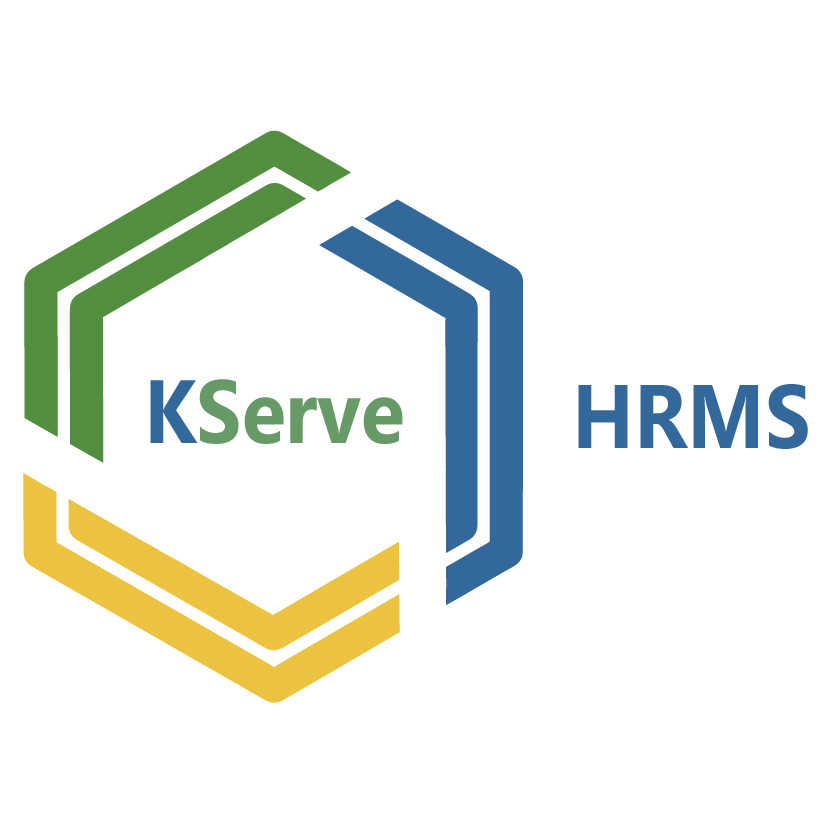Description

HRweb

KServeHRMS
Comprehensive Overview: HRweb vs KServeHRMS
To provide a comprehensive overview of HRweb, KServeHRMS, and uKnowva HRMS, we need to look at the primary functions, target markets, market share, user base, and key differentiators of each product.
HRweb
a) Primary Functions and Target Markets
- Primary Functions: HRweb offers a suite of tools designed to manage various HR functions such as time tracking, applicant tracking, performance evaluations, and employee self-service portals. It aims to simplify HR processes, making them more efficient and less time-consuming for users.
- Target Market: HRweb targets small to mid-sized businesses looking for cost-effective solutions to automate and streamline their HR operations. The platform is particularly attractive to organizations without extensive HR departments, as it offers comprehensive support for essential HR tasks.
b) Market Share and User Base
- Market Share: HRweb, being focused on smaller businesses, does not have the same market share as larger enterprise-focused HR solutions. However, it has a solid presence among small and mid-sized businesses that comprise a large segment of businesses worldwide.
- User Base: The user base primarily consists of small to mid-sized organizations across various industries that need affordable and easy-to-use HR management tools.
c) Key Differentiating Factors
- Ease of Use: HRweb is designed to be user-friendly and accessible for businesses that may not have dedicated IT resources.
- Affordability: It offers competitive pricing packages that appeal to smaller businesses with budget constraints.
- Focus on Basic HR Functions: While it covers essential HR functions comprehensively, it may lack the advanced features offered by more enterprise-focused solutions.
KServeHRMS
a) Primary Functions and Target Markets
- Primary Functions: KServeHRMS provides a comprehensive solution for HR management, covering areas such as payroll management, leave management, recruitment, performance management, employee self-service, and reporting tools.
- Target Market: It targets mid-sized to large enterprises looking for a robust HRMS platform that can handle complex HR processes and integrate seamlessly with other enterprise solutions.
b) Market Share and User Base
- Market Share: KServeHRMS, being targeted at medium and large enterprises, has a notable presence in sectors that require comprehensive HR solutions, but it still faces significant competition from more established enterprise solutions.
- User Base: Its users are primarily mid-sized and large businesses in need of a comprehensive and customizable HRMS platform.
c) Key Differentiating Factors
- Customization: KServeHRMS offers high levels of customization, allowing businesses to tailor the solution to meet their specific needs.
- Integration Capabilities: The platform integrates well with other business systems, making it appealing to larger organizations with complex IT infrastructures.
- Comprehensive Functionality: It supports a wide range of HR processes, making it a suitable choice for organizations looking for a complete HR suite.
uKnowva HRMS
a) Primary Functions and Target Markets
- Primary Functions: uKnowva HRMS covers a variety of HR functions, including attendance management, payroll, recruitment, performance management, employee engagement, and analytics. It emphasizes automation and digitalization of HR processes.
- Target Market: uKnowva targets tech-savvy organizations and startups looking to leverage digital tools for HR management. It is also suitable for medium to large enterprises focusing on digital transformation.
b) Market Share and User Base
- Market Share: uKnowva is growing its presence, particularly in markets eager for digital HR transformations. It lacks the market share of older, more established platforms but is gaining recognition among digital-native businesses.
- User Base: Its user base consists of startups and growing enterprises that prioritize innovative digital solutions in their HR operations.
c) Key Differentiating Factors
- Emphasis on Innovation: uKnowva is positioned as a digital-first platform, offering advanced features such as AI-driven analytics and employee engagement tools.
- Scalability: The platform is designed to grow with businesses, making it a good option for startups and fast-growing companies.
- Automation and Digital Tools: Focuses on automating HR processes and providing intuitive, digitally-focused tools for the modern workplace.
Comparison Summary
- HRweb is best for small to mid-sized businesses that need a straightforward, cost-effective HR tool.
- KServeHRMS is suited for mid-sized to large enterprises requiring a comprehensive, customizable, and integrative HRMS solution.
- uKnowva HRMS appeals to tech-savvy or rapidly growing businesses interested in digital HR transformation and innovative HR tools.
When choosing between these products, organizations should consider their size, growth plans, budget, and desired features to find the best fit.
Contact Info

Year founded :
Not Available
Not Available
Not Available
Not Available
Not Available

Year founded :
2003
+91 44 4261 5064
Not Available
India
http://www.linkedin.com/company/kservehrms
Feature Similarity Breakdown: HRweb, KServeHRMS
When conducting a feature similarity breakdown of HRweb, KServeHRMS, and uKnowva HRMS, it's essential to look into common core features, user interface comparisons, and unique features offered by each software. Here's a detailed analysis:
a) Common Core Features:
-
Employee Management:
- All three platforms offer robust employee management modules including features like employee record keeping, attendance tracking, and leave management.
-
Payroll Processing:
- These systems provide capabilities for managing payroll, including automatic calculations, tax compliance, and payslip generation.
-
Performance Appraisal:
- Performance evaluation tools are integrated into all three systems to assist with regular employee assessments, goal management, and feedback.
-
Recruitment and Onboarding:
- Comprehensive recruitment modules, from application tracking to onboarding activities, are part of each platform to streamline hiring processes.
-
Time and Attendance Tracking:
- Time-off requests, clock in/out functionalities, and shift scheduling are standard offerings.
-
Reporting and Analytics:
- All three provide customizable reporting and analytics tools to help in decision making and strategy planning for HR operations.
b) User Interface Comparison:
-
HRweb:
- Typically designed with simplicity in mind, HRweb offers a clean and straightforward user interface meant for small to medium businesses. Users appreciate its easy navigation and minimalistic approach, focusing on essential features.
-
KServeHRMS:
- KServeHRMS often features a more comprehensive and detailed user interface, which may cater to businesses that require a bit more customization. It supports more complex HR infrastructures, which might demand a bit more user training and acclimation.
-
uKnowva HRMS:
- Known for its modern design, uKnowva HRMS emphasizes a user-friendly and intuitive interface. It's particularly noted for its dashboard customizability and mobile-friendly design, appealing to tech-savvy organizations that prioritize UX/UI.
c) Unique Features:
-
HRweb:
- Affordability: Often highlighted as a cost-effective solution for small businesses that require essential HR functionalities without extensive overhead.
- Simplified Process Automation: It focuses heavily on providing straightforward automation for smaller teams.
-
KServeHRMS:
- Integration Capabilities: Excels in integration with various third-party applications, providing an edge for organizations already utilizing multiple software across departments.
- Customization Options: Offers extensive customization features to tailor workflows and reports, making it a flexible choice for complex organizational needs.
-
uKnowva HRMS:
- Social Intranet Features: Offers innovative internal communication tools, allowing for enhanced collaboration features within its HR modules, such as chat, forums, and knowledge sharing.
- AI and Machine Learning Utilization: Employs AI for predictive analytics and smart insights in HR functions, setting it apart as a forward-thinking platform.
Each product has its strengths and is tailored to meet different organizational needs, ranging from small businesses to mid-sized enterprises with unique operational requirements. The choice between these platforms will largely depend on specific business needs, budget constraints, and preference for user experience.
Features

Not Available

Not Available
Best Fit Use Cases: HRweb, KServeHRMS
To determine the best fit use cases for HRweb, KServeHRMS, and uKnowva HRMS, it's essential to look at the strengths and features of each platform and how they cater to different types of businesses or projects.
a) HRweb
Best Fit for:
- Small to Mid-Sized Businesses (SMBs): HRweb is designed for small to medium-sized companies looking for an affordable and user-friendly HRMS to manage essential HR functions.
- Projects Focused on Simplicity and Cost-Effectiveness: Companies that need a straightforward tool to manage applications, track employee time, and performance evaluations without extra bells and whistles might find HRweb ideal.
Key Scenarios:
- Enterprises with limited IT resources that require a cloud-based solution for easy accessibility and minimal maintenance.
- Organizations focusing on basic HR functionality without complex integrations or customizations.
Industries:
- Suitable for a wide range of industries but typically appealing to sectors with straightforward HR requirements like retail, services, and small manufacturing firms.
b) KServeHRMS
Preferred for:
- Comprehensive HR Solutions: KServeHRMS is suited for businesses that require a full-featured HR management system covering everything from recruitment to retirement.
- Growing Enterprises: It’s beneficial for companies anticipating growth and needing scalable HR solutions with a wide range of functionalities.
Key Scenarios:
- Businesses looking for extensive customization and integration capabilities with other enterprise systems.
- Industries needing detailed analytics and reporting tools for strategic HR decision-making.
Industries:
- Versatile across various sectors, especially technology, healthcare, and large professional services firms looking for a strategic HR partner for compliance and workforce optimization.
c) uKnowva HRMS
Best Suited for:
- Tech-Savvy Enterprises: uKnowva HRMS often attracts businesses eager to leverage technology for HR innovation, especially those adopting new norms like remote work.
- Modern and Dynamic Work Environments: Companies interested in using automation, AI, and employee self-service modules to enhance employee experience.
Key Scenarios:
- Organizations focusing on employee engagement and a need for robust self-service portals.
- Businesses needing flexibility through modular design, aiding in managing different HR functions independently or as a whole.
Industries:
- Particularly suitable for tech companies, startups, and firms in fast-paced industries where automation and employee empowerment are crucial, such as marketing and IT services.
d) Catering to Different Industry Verticals or Company Sizes
-
HRweb mainly targets smaller companies or those with straightforward needs, providing core features without complex functionalities, suitable for basic industry needs.
-
KServeHRMS is versatile, capable of handling the complex needs of larger organizations with diverse operations, across various industries like healthcare or finance where comprehensive HR management is key.
-
uKnowva HRMS appeals to industries embracing digital transformation and employing a younger workforce. Its features cater to tech-centric environments where integration and adaptability are prioritized.
Each of these HRMS platforms addresses distinct needs based on company size, industry requirements, and the level of technological integration desired. Businesses should evaluate their specific HR processes, growth trajectory, and technological preferences to select the most fitting HRMS.
Pricing

Pricing Not Available

Pricing Not Available
Metrics History
Metrics History
Comparing undefined across companies
Conclusion & Final Verdict: HRweb vs KServeHRMS
To provide a comprehensive conclusion and final verdict on HRweb, KServeHRMS, and uKnowva HRMS, we need to assess each product based on its features, pricing, user experience, integration capabilities, and customer support. Here's a detailed evaluation:
A) Best Overall Value:
Based on an overall assessment, the product that offers the best value depends on the organization's specific needs, size, and budget. However, if considering a balanced combination of features, ease of use, and affordability, uKnowva HRMS is often seen as a strong contender for the best overall value because of its comprehensive feature set and flexible pricing models that cater to both small and large enterprises.
B) Pros and Cons:
-
HRweb:
- Pros:
- Easy to use with a straightforward interface, suitable for small businesses.
- Cost-effective, especially for startups on a tight budget.
- Basic features include applicant tracking, performance reviews, and time-off management.
- Cons:
- Limited advanced features may not suffice for larger enterprises.
- Integration options could be more extensive.
- Customer support can sometimes be delayed.
- Pros:
-
KServeHRMS:
- Pros:
- Robust feature set ideal for mid to large organizations.
- Offers modules like payroll, performance management, and recruitment.
- Strong customization options with good integration capabilities.
- Cons:
- Can be more expensive compared to its counterparts.
- The learning curve might be steeper for new users.
- Implementation can be time-consuming.
- Pros:
-
uKnowva HRMS:
- Pros:
- Comprehensive HR solution with scalability across different business sizes.
- Offers seamless integration with other software, enhancing its utility in an existing tech ecosystem.
- Flexible pricing plans and customizable modules.
- Cons:
- Some users report occasional bugs or glitches.
- Advanced features might be overwhelming for very small businesses.
- Customer service isn’t 24/7 which might be a limitation for some users.
- Pros:
C) Specific Recommendations:
-
HRweb is most suitable for small businesses and startups looking for a budget-friendly, easy-to-use HR management tool with essential features. Companies with basic HR needs and limited budgets should consider HRweb.
-
KServeHRMS is recommended for mid-sized to large enterprises requiring a comprehensive range of features, customization, and integration capabilities. Organizations that need a detailed approach to HR management, including performance analysis and extensive reporting, can benefit from KServeHRMS.
-
uKnowva HRMS is ideal for businesses of varying sizes that require flexibility and scalability. Its modular approach allows companies to tailor the solution to their needs, making it particularly appealing for growing organizations or those planning digital transformation.
Ultimately, the decision between HRweb, KServeHRMS, and uKnowva HRMS should be based on the specific requirements, budget constraints, and strategic goals of the organization, alongside a trial period if possible to evaluate user experience and applicability.
Add to compare
Add similar companies



